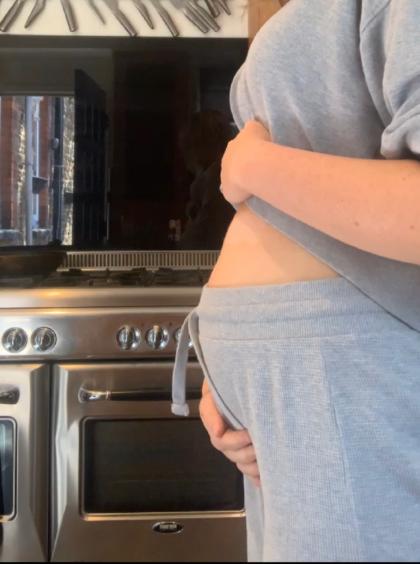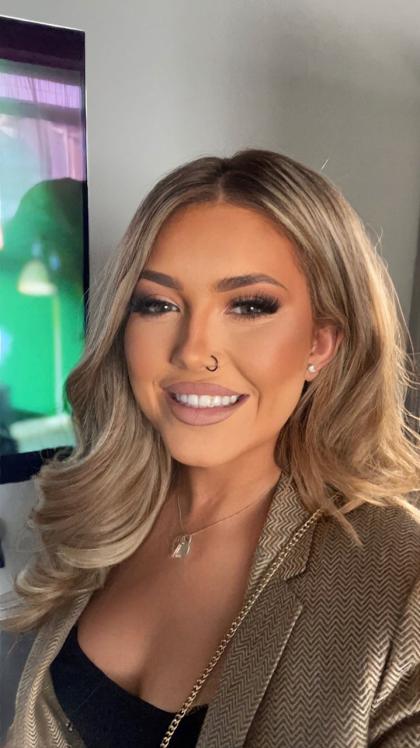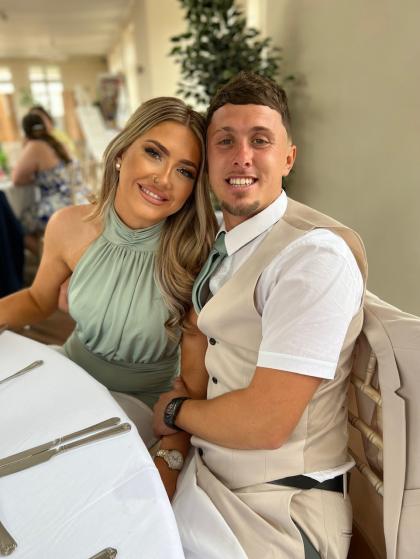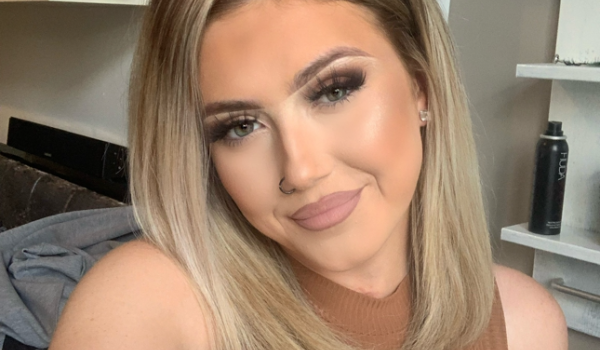Summer was diagnosed with stage 1c ovarian cancer at 18 years old. She is sharing her story so that other people of a similar age don’t feel isolated and are encouraged to see their GP.
Persistent bloating
I was sat in the garden sunbathing in the early summer sunshine when my mum came out to see me and said that I looked bloated. I didn’t think much of it, just that I’d put on weight.
The next week though, she turned to me again, concerned, saying that I looked pregnant. I felt my stomach and it was hard… I took a pregnancy test but it was negative.
I got in touch with the GP – at this time there were no visits to surgery due to the pandemic. I said I had really bad swelling around my belly and I was prescribed laxatives.

A couple of weeks later, nothing had changed. My mum had noticed that I was eating less, leaving two thirds of my food.
I called the GP back and said nothing had changed and was given stronger laxatives. Feeling frustrated I pushed for a face to face appointment. At that appointment the GP put pressure on my stomach and could feel something. She referred me for a blood test – a CA125 – and meanwhile did an internal examination.
Emergency hospital admission
Two days later I was in the hospital undergoing an urgent scan. Thinking it was urinary retention, they catheterised me. As a healthcare professional, I noticed there wasn’t much urine drained overnight, so I was fitted with a bigger catheter. The following day I spotted blood in the bag.
Another scan. This time it showed my bladder was empty and what they thought was a cyst on my right ovary. There were no concerns that this was ovarian cancer. I was continually told that I was too young. They carried out a laparoscopy and removed the tumour, however it burst.
Receiving my diagnosis
I was still waiting for my CA125 test results but had done my own research and saw it was a blood test that checks the level of CA125 (a protein) in your blood and is a marker currently used for monitoring women after treatment for ovarian cancer. While I was preparing myself for an ovarian cancer diagnosis, my mum wasn’t. So when they sat us down and told us the diagnosis and the preventative surgery which would remove my right ovary and fallopian tube, I wasn’t shocked but my mum was distraught.
As the cancer was in the early stages, I was told I could have chemotherapy but I didn’t have to as the surgery should be enough. I know that it seems like a small thing when compared to ovarian cancer but I really didn’t want to lose my hair. The thought of losing my hair was devastating so I decided not to have it but have biopsies carried out to check I was clear of all cancerous cells.

Genetic testing
We were all confused how this had happened and I was put forward for genetic testing. I have other health conditions where I am susceptible to cysts which have been on my kidneys and bowel, but know they can spread to my lungs, brain and spine.
Sat in my consultant’s room a few months down the line, my auntie was by my side. My consultant and I discussed my symptoms and suddenly she thought of her own daughter who was having issues with her periods. It turns out we both have a hereditary gene called DICER 1 – a mutation that can increase the risk of cancerous tumours.
Fertility
Although I have one ovary remaining, due to the hereditary gene when the time comes that I want children I will go down the IVF route. This is something that has been really hard to deal with. It feels really scary.
When I’ve looked at the chance of success via IVF it doesn’t look that high, and I will need to have an egg retrieval in the next couple of years for the best chance.
It’s not just all these decisions that makes this hard, it’s knowing that I won’t ever have that moment of surprise looking down at the pregnancy test. That’s been taken away from me.
The impact
Throughout my treatment I was almost like a robot. I could get through it. It was afterwards, once it was over. I just felt like the ovarian cancer had destroyed me. I was an anxious mess, and so scared of falling ill again. I felt so lucky that it was caught early but panicked about it coming back.
I also had survivors’ guilt. As a young person I was offered days out with other young people with cancer, I went once but felt so guilty as I still had all my hair and I looked healthy and was with 13 year olds who just had months to live.
I isolated myself further. Fortunately I was offered counselling which helped me to gain another outlook.
Not only that but I had brilliant support from my mum, and also my boyfriend who I met at the beginning of my diagnosis. He has been amazing. He comes to all my appointments with me, walks with me down the beach to help clear my head afterwards, and has really been there for me. It’s something that I massively appreciate and don’t take for granted.

Searching for someone who knew how I felt
I came across Target Ovarian Cancer when I was searching for someone who had the same type of cancer as me – a sex cord stromal tumour. I’d really struggled to find someone or their story but that’s what I found on the charity’s website.
It was so reassuring to read someone else’s story and know that I wasn’t alone. I didn’t have to feel like I needed to isolate myself.
Looking to the future
I'm 21 now and my outlook on life and my perspective has changed.
I can’t guarantee what tomorrow is going to bring so now I'm living for me.
I quit my job and applied for university and am now a student nurse. I'm grabbing every possible moment I can and never turn anything down. I spend time with my family and the people I love.
Advice to others
I wanted to share my story so that other young girls are aware that this is not a disease that just affects older women. For them to know that it is so important to be aware of changes in their body. Be confident, see your GP and persist with them – if I hadn’t, I don’t know where I’d be now.
My consultants predict that the tumour had been there a long time as it was 19cm x 10cm.
The earlier the cancer is found, the better the outcome. That’s why we need to talk about it and raise awareness.
If you’ve been affected by this story and would like to speak to a specialist nurse, you can call our dedicated support line on 020 7923 5475 or contact us: [email protected]. We're open from 9am until 5pm, Monday to Friday.
If reading this story has helped you, join the Ovarian Cancer Community to connect with more people affected by ovarian cancer: www.targetovariancancer.org.uk/onlinecommunity



